About Central Naugatuck Valley HELP Reverend Edward M Dempsey Drug Services Waterbury
McCall Behavioral Health Dempsey Center in Waterbury, Connecticut is a place of refuge that offers men a structured and compassionate environment to address their healing needs. This residential treatment facility has a longer duration of stay, eight to 12 months, which gives individuals the duration and resources needed to start their life anew. The center focuses on long term recovery and develops a good platform for a future without addiction.
A Hands On Approach to Healing
The center offers medication assisted treatment (MAT), psychiatric care, therapy and relapse prevention strategies. One on one counseling and group therapy is provided to the residents and cognitive behavioral therapy, dialectical behavior therapy and trauma informed care is used to help break the cycles of destruction.
Unlike most centers, the program features adventure based counseling, which means that the therapy is done in outdoor places such as hiking trails. This active and exciting method of treatment is effective in a way that standard sitting in an office and talking to a therapist cannot.
Building a Future Beyond Addiction
It is important to note that treatment does not end when rehabilitation is over. The employment education program assists residents in getting ready for life after rehab, it provides career advice and job search assistance. Guided structure and a secure atmosphere allow people to once again take charge of their lives.
Addiction Treatment Programs
Alcohol Rehab
Alcohol rehab in Connecticut helps clients find the motivation to make a change and gives them the tools to achieve long-term sobriety. In an alcohol program, you’ll not only receive treatment, but you’ll participate in activities, receive peer support, and learn how to have fun without alcohol.
Dual Diagnosis
People with a dual diagnosis may be using substances to self-medicate. A high-quality rehab in Connecticut can address both issues and help you reach recovery. In dual diagnosis programs, the activities, peer support, and counseling are tailored to the unique needs of those with mental health concerns. This may include additional therapy, medication, or peer support.
Opioid Addiction
A treatment program in Connecticut can give you the tools and skills you need to overcome opioid addiction and reclaim your life. Common services include counseling and classes on coping skills, emotional management, communication, and other key life skills. Opioid rehab programs can provide inpatient or outpatient treatment.
Adult Program
Adult programs in Connecticut address a wide range of substance use issues while also helping clients with concerns such as raising children or building a career. In an adult program, the activities, peer support, and counseling are tailored to the unique needs of this age group. This may include talking about how to build a career, raise a family, and handle the many responsibilities of independent living.
LGBTQ Friendly Rehab
For those who identify as LGBTQ+, an LGBTQ+ friendly rehab in Connecticut can give you the understanding and safety you need to break free from addiction. These treatment programs offer detox, inpatient treatment, and outpatient care tailored to the unique needs and challenges of the LGBTQ+ community.
Military Rehab
Finding a military rehab in Connecticut can make all the difference in helping you overcome substance use if you’re a veteran or service member. In a military program, the activities, peer support, and counseling are tailored to the unique needs of service members and veterans. This may include trauma-informed care, treatment for PTSD, stress management, and more.
Men's Rehab
A men’s rehab in Connecticut addresses the unique needs men have and allows them to build relationships in a gender-specific environment. In a men’s program, the activities, peer support, and counseling are tailored to the unique needs of men. This may include talking about career development, fatherhood, communication strategies, and more.
Women's Rehab
Those who join a women’s rehab program in Connecticut are given training in key life skills to help them address their unique challenges. In a women’s program, the activities, peer support, and counseling are tailored to the unique needs women have. This may include talking about building a career, motherhood, relationship safety, and more.
Young Adult Rehab
When people join a young adult rehab in Connecticut, they learn key life skills while receiving treatment. In a young adult program, the activities, peer support, and counseling are tailored to the unique needs of this age group. This may include talking about how to start a career, have a family, and live independently.
Insurance Coverage
Medicaid
When looking for ways to pay for rehab in Connecticut, consider Medicaid if you are struggling to afford treatment. Programs that accept Medicaid can offer any level of care, including detox, inpatient, and outpatient. Your out-of-pocket costs, if any, are likely to be very low.
Self-pay options
Paying out of pocket for addiction treatment in Connecticut is known as self-pay. You can get a medical loan, electronically send payment to the center, or even write a check. Talk to the rehab center about the fee structure, which may depend on the level of care.
Financial aid
When looking for ways to pay for rehab in Connecticut, consider asking about financial aid programs. Finding aid programs takes some research. Look for community groups or nonprofits in your area that may offer assistance, or ask individual treatment centers if they offer scholarships and grants.
Medicare
If you’re looking for ways to pay for rehab in Connecticut, consider using Medicare. Plans vary, so be sure to get all the details before you start treatment. You may have out-of-pocket costs such as deductibles and copays.
Private insurance
Using private insurance is a great way to pay for rehab in Connecticut. Depending on your insurance plan, it may cover some or all of the costs of treatment. Check on details such as how much your deductible and copayments are, as well as which treatment centers are in your plan’s network.
Levels of Care
- 1
Inpatient Rehab
Inpatient treatment in Connecticut is led by professionals who help you build new habits and skills to live a substance-free life. Inpatient care doesn’t just involve therapy, you also enjoy activities and outings, and many programs have holistic treatment like yoga, mindfulness, and more.
- 2
Outpatient Rehab
If you’ve recently finished a residential treatment program, participating in outpatient treatment in Connecticut can help you reinforce and practice your new habits. During outpatient treatment, clients have independence outside of sessions, allowing them to work, attend school, and practice their new habits in real-world situations.
- 3
Aftercare Support
In Connecticut, aftercare allows you to access additional resources and support to help you avoid relapse after treatment. A strong aftercare program can include ongoing counseling, education and employment support, housing services, and connections to community resources.
Therapies
Cognitive Behavior Therapy
Cognitive behavioral therapy in Connecticut involves being aware of how your thoughts are connected to your feelings and behavior. CBT can help you identify and challenge maladaptive thoughts, calm your mind, and face your fears rationally.
Dialectical Behavior Therapy
Dialectical behavioral therapy in Connecticut involves embracing your strengths and building confidence in your ability to make positive changes. DBT can help you replace problem behaviors with skills that give you a healthier way to manage stress and handle substance use triggers.
Family Therapy
Many people have challenging family backgrounds, and addiction can create unhealthy dynamics as well. Family therapy in Connecticut allows you to address these concerns. Family therapy is a common part of both inpatient and outpatient substance use treatment and may be used to help address trauma, build better relationships, and help loved ones become part of your support network.
Group Therapy
It’s easy to feel isolated when you battle addiction, but group therapy in Connecticut can show you you’re not alone. In rehab, group therapy is only one of the elements of treatment, along with activities, peer support, individual counseling, relapse prevention, and more. Together, all these methods support you in establishing long-term recovery.
Rational Behavioral Therapy
If you’re struggling with substance use in Connecticut, you may not realize how connected your beliefs and actions are. Rational behavior therapy can help increase your awareness. RBT can help you identify and challenge maladaptive beliefs, reframe them, and face triggering events rationally.
Recreational Therapy
In Connecticut, recreational therapy helps you learn to manage stress, communicate, and ask for help. This can make it easier to reach long-term recovery. Recreational therapy is commonly part of inpatient or intensive outpatient treatment and is often used to help clients gain confidence in their ability to overcome challenges and trust others for support.
Trauma Therapy
Trauma is an emotional response to a terrible event, and some people use substances to numb those emotions. Trauma-informed therapy in Connecticut can help you address what happened and consciously create a healthier response. Substance use and trauma are interrelated, and trauma-informed therapy involves working with the therapist and your support network to create healthy coping skills, become empowered, and improve resilience.
Accreditations
Location
Contact Central Naugatuck Valley HELP Reverend Edward M Dempsey Drug Services Waterbury
Top Drug Rehab Centers in Connecticut
-
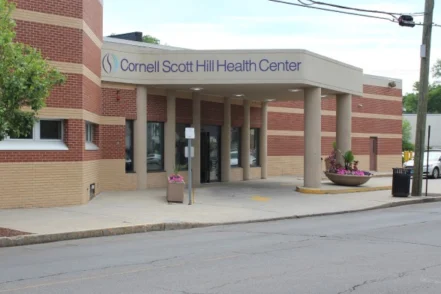 Connecticut
ConnecticutCornell Scott Hill Health Center 400 Columbus Avenue
400 Columbus Avenue New Haven, Connecticut 06519
-
 Connecticut
ConnecticutSilver Hill Hospital
208 Valley Road New Canaan, Connecticut 06840
-
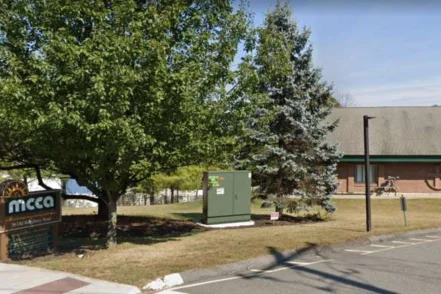 Connecticut
ConnecticutMCCA Midwestern Connecticut Council on Alcoholism McDonough House
38 Old Ridgebury Road Danbury, Connecticut 06810
-
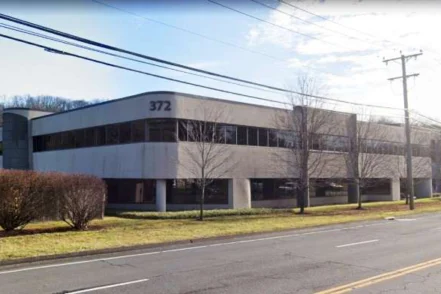 Connecticut
ConnecticutMountainside Wilton
372 Danbury Road Wilton, Connecticut 06897
-
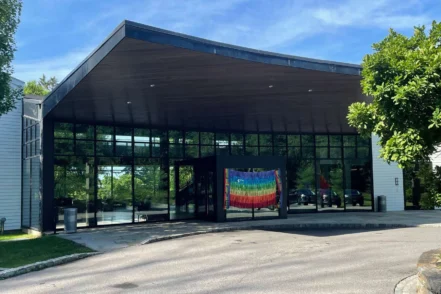 Connecticut
ConnecticutMountainside Treatment Center Canaan
187 South Canaan Road Canaan, Connecticut 06018
-
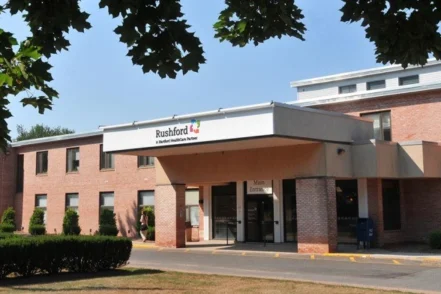 Connecticut
ConnecticutRushford Center Meriden
883 Paddock Avenue Meriden, Connecticut 06450
-
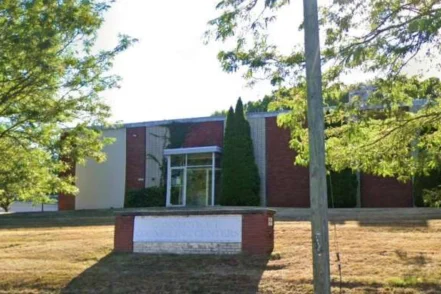 Connecticut
ConnecticutConnecticut Counseling Centers Inc
60 Beaver Brook Road Danbury, Connecticut 06810
-
 Connecticut
ConnecticutAware Recovery Care North Haven
556 Washington Ave, Unit 201 North Haven, Connecticut 06473
-
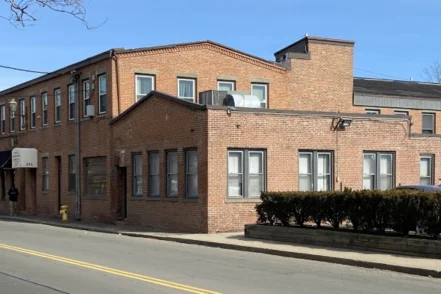 Connecticut
ConnecticutNew Era Rehabilitation Center New Haven
311 East Street New Haven, Connecticut 06511

